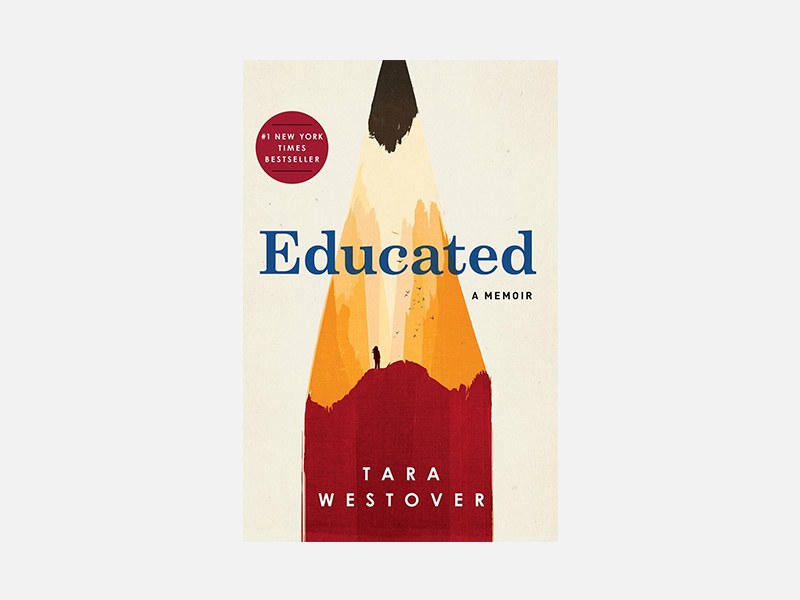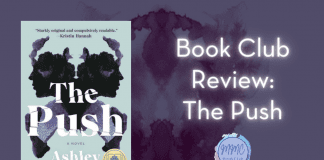Imagine that your very first day of school was at the age of seventeen.
 This is the age that Tara Westover, the author of Educated, entered her first classroom.
This is the age that Tara Westover, the author of Educated, entered her first classroom.
Tara and her six siblings were raised by Mormon survivalists in Idaho. Her father’s fears of the end of the world and paranoia about government influence shaped the family’s life of isolation, self-reliance, and ignorance.
They never attended school or received a formal education as children. They avoided hospitals and doctors, relying on holistic methods to treat every ailment and injury. Her father’s conspiracy theories dictated their lives, and her family aimed to live outside of society and away from beliefs or institutions that were deemed immoral or unsafe. Tara and her siblings were educated by their mother and father in the ways they felt were most valuable, albeit not in a traditional or formalized way.
As parents, we are expected to guide our children as safely and properly as possible. In Tara’s life, her parents made choices for their family that they thought were best. But these choices were not necessarily right.
Tara talks of home schooling but in a very informal, unorganized manner. Her learning was mostly through her own pursuits, as the family was committed to other interests in order to survive. She worked with her mother, an unlicensed but experienced midwife and essential oil/holistic medicine producer, and with her father in the scrap yard. These jobs were hard and often dangerous; her education sporadic and unorganized. Many of us would find these to be abhorrent choices for our children.
Yet, Tara thought nothing of this lifestyle – until she left home.
She talks of traumatic memories in a candid way, often relating that it did not feel strange or abnormal at the time. One of her older brothers was abusive and manipulative; there is a poignant memory of Tara waking up to find his hands around her throat, calling her a whore because of a friendship with a boy. Tara and her entire family made excuses for the behavior and for many things that happened in their upbringing.
As readers and observers, our book club often wanted to shout at the narrator. Alicia, one of our members, said that every time Tara was driving back home to the mountain, knowing that there would be pain and distress, she wanted to yell at her, “NO, NO, NO!”
It is easy to look at the behavior and life of someone else and find flaws; it is another thing to confront your own life and change it.
Tara studied and worked hard to earn a good ACT score, gaining her admission to Brigham Young University. She struggled as a young college freshman and true first-time student and adult. There was the cultural shock of living outside of the mountain and family home in Idaho, and money was always scarce. She refused to seek help because the fear of government intrusion was embedded in her mind. It also was difficult to make friends or live with roommates after being raised in a sheltered, strict environment.
I think the pivotal moment for Tara was the day she learned about the Holocaust. She made a remark in a lecture that was taken offensively, but she was genuinely confused. She had never really learned about this terrible time in history, among other moments and eras, and she was simply ignorant of the facts. Upon learning about the Holocaust, Tara felt awful and ashamed.
It is almost as if that small moment in her own life and education opened her eyes to the possibilities of a larger, different world, one entirely different than the one she grew up in.
She continued to learn and gain an education, both in school and in life. She went on to study at Cambridge, earning her doctorate in intellectual history. She traveled and made friends with people from all walks of life. There was always a pull back to the mountain in Idaho and the life she was raised in, and her quest for discovery and enlightenment led to an estrangement from some of her family.
Tara states it best: While others may see her path as a transformation or even a betrayal, “I call it an education.”
Tara Westover and two of her siblings went on to earn PhDs. This is impressive for any family. So what does this say about formalized and structured education? Is it as imperative to life and success as we are led to believe?
We all can agree that education is an ever-changing medium. Education is more than a classroom or a school. As Tara showed, it can be found in the home and in the world; it can be gained through life experiences and painful moments; it is in books and memories. The method is less important than the actual education, but the learning itself is important. How else do we grow and change as individuals? How can we grow out of our own narrow worldview without exposure to other people, places, cultures, and words?
Once again, Tara’s own words state it best.
In an interview with Bill Gates, Tara said this on education: “I think education is really just a process of self-discovery—of developing a sense of self and what you think. I think of [it] as this great mechanism of connecting and equalizing.”
If we can take anything from this memoir Educated and of education, it is that.












